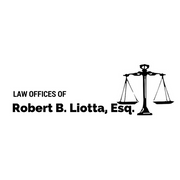What You Need to Know About Wills & Real Estate

For most people, the real estate they own is the most valuable asset in their estate. What happens to a property after the owner passes away depends on how it’s titled; namely, whether it’s owned solely or jointly. Here’s what you should know about transferring or receiving real estate through sole or joint ownership.
Sole Ownership
Sole ownership means a property is owned in the name of one person only. This person has 100% ownership rights over the property. When the owner dies, the property will go through the probate process, where the courts will determine who inherits it.
In estates with a will, the document names the beneficiary of the property. In estates without a will, the courts use the state's intestacy laws to identify the deceased's closest next of kin, who will then inherit the property.
Joint Ownership
 Joint ownership is a piece of real estate owned by two or more people, with a rights of survivorship clause included in the deed. Rights of survivorship stipulate that, upon the death of one of the property owners, the other owner assumes the deceased's share and now has 100% ownership rights. In this situation, there’s nothing to probate because the property already has a full owner.
Joint ownership is a piece of real estate owned by two or more people, with a rights of survivorship clause included in the deed. Rights of survivorship stipulate that, upon the death of one of the property owners, the other owner assumes the deceased's share and now has 100% ownership rights. In this situation, there’s nothing to probate because the property already has a full owner.
When a joint ownership doesn’t have a rights of survivorship clause, the ownership arrangement is called tenants in common. Each owner has a percentage of ownership in the property, which does not have to be an even split.
When one of the owners passes away, their share of the property is submitted for probate. Its fate, as in sole ownership, is determined by the terms of the will or the state's intestacy laws if there is no will.
Pennsylvania has another joint ownership option referred to as tenants by entirety. This is for married couples only, and each spouse has equal ownership and interest in the property. This arrangement lasts as long as the marriage lasts.
When one spouse dies, full ownership transfers to the surviving spouse without the need for probate. One of the main benefits of a tenants by entirety arrangement is that the surviving spouse cannot be held legally liable for the debts of the deceased spouse. Creditors cannot try to take the deceased spouse's share of ownership to satisfy outstanding debts.
When you own property and need assistance drawing up a will or have questions about inherited property, consult the Law Offices of Robert B. Liotta, Esq., in Lower Burrell, PA, for legal guidance. Since 2000, Attorney Liotta has been representing clients throughout West Moreland, Allegheny, and Armstrong counties. He offers legal services in estate planning, real estate issues, personal injury, and family law cases. Call (724) 334-9870 or visit his office's website to schedule a consultation.
About the Business
Have a question? Ask the experts!
Send your question

